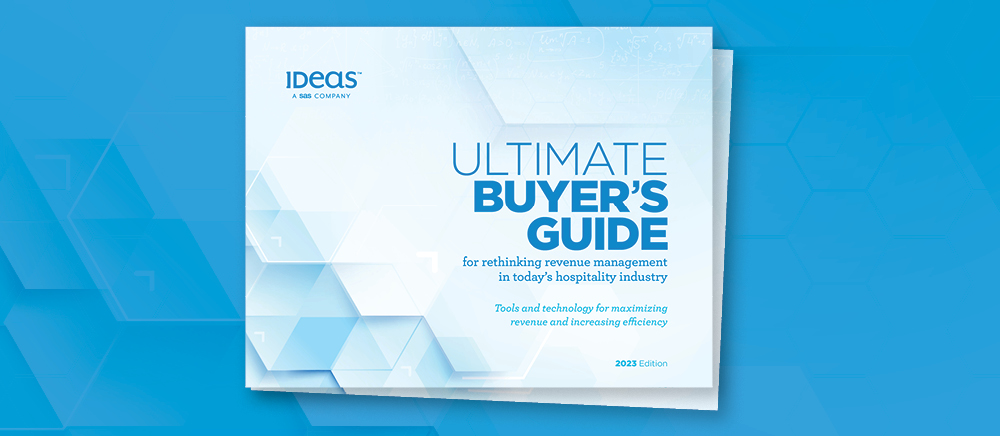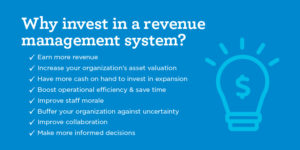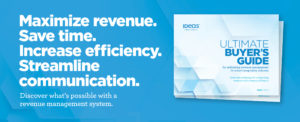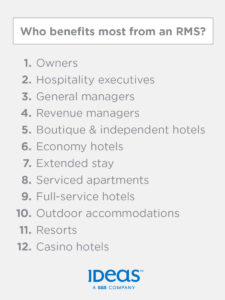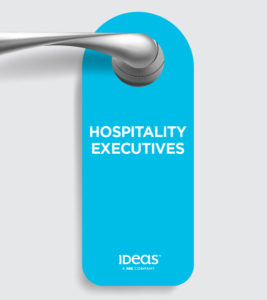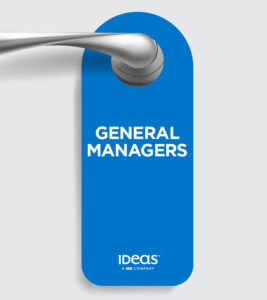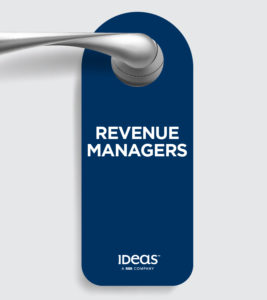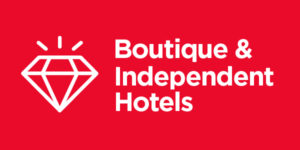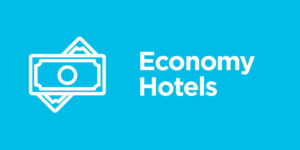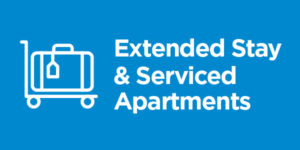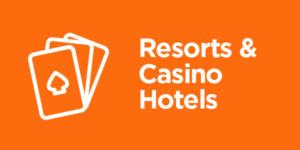Have you ever wondered, “Is a revenue management system (RMS) right for my position, team, and organization? Is there a way to find out if this solution is worth the investment?”
Those are excellent questions, and we have the answers.
So, whether you’re considering a revenue management solution for your hospitality organization or are simply wondering what value an RMS provides, you’re in luck. We outline what types of hospitality organizations and which positions benefit most from an RMS in the paragraphs below.
Read on to discover whether an RMS is right for your hospitality business.
What is an RMS & what benefits does it provide to hospitality professionals?
There’s an easy way to explain and understand a revenue management system and the value it provides. Think of an RMS as a virtual assistant that automatically takes care of tedious, time-consuming, and manual (but essential) tasks for you.
In other words, are you tired of spending hours pouring over spreadsheets and historical data to price rooms accurately?
Your RMS can do that.
Sick of manually programming rules in your pricing tool?
Skip it! Your RMS takes care of pricing for you without any programming.
Tired of trying to figure out which group or corporate business would produce the most revenue?
Let your RMS take care of that too.
Revenue management systems—like G3 RMS from IDeaS—consider all the factors and circumstances that go into setting prices for rooms and other revenue streams, such as restaurants, golf courses, and catering.
Supply and demand, local events, historical records, group size, revenue stream type—an RMS considers these circumstances (and more) before automatically setting prices that maximize revenue.
So, how do you and your organization benefit from these key RMS functions?
Besides earning your organization more money and boosting its bottom line (without increasing headcount), your RMS virtual assistant will save you valuable time.
While your RMS crunches the numbers and maximizes revenue, you and your teammates can take time to focus on strategic, revenue-producing efforts that maximize earnings even further.
Not bad for a virtual assistant.
Learn more about the benefits of a hospitality revenue management system by downloading our ultimate buyer’s guide.
What positions within a hospitality organization benefit most from an RMS?
While every hospitality organization works differently, the types of hospitality positions listed below generally benefit most from using a revenue management system.
Owners
By streamlining efficiency, improving pricing, and selecting the most profitable clients for group and contract business, revenue management systems save time and increase revenue for hospitality organizations.
And increased revenue gives owners the resources they need to excel at their primary goal—boosting the value of their organization and increasing asset valuation.
After all, for a business to grow, it needs more money to invest. Revenue management systems help create that extra capital, giving owners the resources required to build new locations, expand into new markets, diversify offerings, and promote their organizations.
And as the value of a hospitality organization grows, it gains access to lower interest rates and a higher likelihood of acquisition. Plus, the financial success of a hospitality business makes it more alluring to investors looking for safe and proven places to grow their wealth.
So, whether you own a single location or a conglomerate of properties, your work as an owner is highly personal and essential for driving the long-term success of your organization.
And since it’s your money and reputation on the line, you want to ensure every penny of it goes toward achieving a positive outcome, whether that means expanding your holdings or simply improving the guest experience.
The right RMS gives you the extra revenue and time to achieve those goals.
“We believe the era where we can fill up rooms at high rates by doing nothing is gone. It’s a competitive market out there, and we must grab every opportunity we can.
We can upsell when we can, but when we cannot, we need to stay competitive. This aspect is difficult for humans to manage, and that’s where revenue management technology (an RMS) becomes essential.”
– Nikolas Ioannidis, owner, Belvedere Hotel Mykonos
Hospitality executives
Like owners, hospitality executives focus on increasing the value of their organizations. Achieving these goals requires more revenue, greater operational efficiency, and deeper insights into future opportunities—all of which a revenue management system can provide.
By helping to determine optimal prices and automating pricing decisions, an RMS can help executives improve the efficiency of their operations. And by finding the ideal price points for multiple revenue streams—whether a single room or a large contract for hundreds of rooms—an RMS helps execs boost the bottom line of their organizations.
And when executives improve their organizations’ bottom line, they gain additional opportunities for expansion, whether through acquisition or promotion.
And when it comes time to expand by acquiring existing hospitality businesses, an RMS can help too. After all, sellers want to know, “How can you (the hotel exec offering to buy my company) make my hotel more attractive, profitable, and efficient?” An RMS can provide the answer by offering detailed metrics and historical proof of how it improved the bottom line of your business.
“IDeaS has enhanced Taj Hotels’ approach to revenue management by delivering highly accurate 28-day forecasts and helping predict longer-term demand beyond a 60-day horizon. These forecasts help our properties plan demand-generation promotions and manage staffing levels based on occupancy.
The scientific approach to managing group pricing and shoulder-night occupancies IDeaS RMS offers helps us maximize guest revenues through changing market conditions.”
– Karishma Singh, associate vice president, revenue management for IHCL
General managers
Chronically short on time and needed in every department, general managers do more than their share to keep operations running smoothly. And while their schedules often fill up with crucial, ground-level activities such as ensuring guests receive quality service and supervising staff, general managers also need time to focus on more strategic endeavors.
These strategic initiatives include increasing team efficiency, planning budgets, setting sales targets, analyzing sales figures, producing reports, managing accounts, and more. In any of those cases, general managers can rely on an RMS to support their efforts.
Whether determining staffing needs or providing figures for creating a more targeted marketing campaign, an RMS provides insights that general managers can use to make more informed decisions. And those more informed decisions lead to lower overhead and increased revenue.
An RMS can also help general managers and sales teams identify gaps in occupancy and ways to fill those gaps with the most profitable business from contracts or groups. Rather than using their valuable time to crunch the numbers themselves, general managers can rely on an RMS to help them decide if a particular group or contract is the right group or contract for any given period.
Given that general managers make decisions like these on a near-constant basis, an RMS won’t take long to make a positive impact.
“We are still in the system daily but only for short periods of time, giving us far more bandwidth for strategic planning. I trust the system completely. I know I can let G3 RMS run on autopilot when needed and don’t have to constantly worry about the decisions it’s making.
The stress reduction alone—much less the monumental ADR growth and profit assistance—is greatly appreciated. Thank you, Dr. Ravi Mehrotra and IDeaS team, for building such a brilliant product and for being such excellent technology partners.”
– Kristie Rasheed, General Manager at The Dewberry Charleston
Revenue managers
Revenue managers face mounting pressure from multiple directions: online travel agencies, the sharing economy, staffing shortages, and economic uncertainty. Facing these challenges successfully means finding the time to focus on developing strategic solutions. That’s easier said than done.
But by automating manual, repetitive pricing, data entry, and analytical tasks, revenue management systems can provide revenue managers with the extra time they’re looking for.
With an RMS taking care of tedious yet necessary tasks, revenue managers can focus more on strategy and revenue-enhancing initiatives.
For example, if a revenue manager identifies a gap in revenue a few months down the line, they can focus on filling it while their RMS takes care of the day-to-day busy work.
And when revenue managers are filling gaps in revenue and hitting their goals, they put themselves in a stronger position to advance in their careers. What’s not to like about that? The right RMS can help make those new opportunities possible.
“I used to waste a lot of time on data entry and had limited data to work with. I now live in the G3 RMS world with a one-stop-shop, clear view of demand.
Having an automated RMS has really helped me strategize more. Instead of spending all my time in a manual environment, I can now quickly see the bigger picture and spend more time contributing to things like marketing efforts and optimizing our online presence. It’s enabled me to be far more productive and proactive.”
– Kelly Gattis, Director of Sales & Revenue, Sunset Tower Hotel
But wait! Will an RMS put me & my team out of work?
The short answer is a resounding, “No!”
An RMS will help you increase efficiency so that you can meet (and exceed) your goals and make more informed decisions that lead to higher revenue.
After all, organizations that use revenue management systems receive 20 to 40 hours of their time back every month, according to a 2022 study by Hotel Tech Report.
Imagine having 20 to 40 more hours each month to think strategically, improve guest experiences, and generate new revenue. That’s the power of working with an RMS.
What types of hospitality organizations benefit most from an RMS?
An outdoor recreation site couldn’t feel more different than a luxury or economy hotel or a beachside resort. But despite the differences, each of these hospitality organizations would benefit from using a revenue management system.
The same goes for the following accommodation types listed below.
Boutique & independent hotels
Besides helping upper management save valuable time, automated revenue management systems—such as G3 RMS from IDeaS—provide boutique and independent hotels with analytical insights and comprehensive support that helps drive higher earnings.
Economy hotels
Achieving high profitability and providing a memorable experience while operating on a thin budget represents a real challenge. But the right RMS can help economy hotels automate mundane tasks and boost revenue so that the razor-thin budget gets a little (or a lot) more to work with.
Extended stay & serviced apartments
With travelers worldwide looking for more staycations, work-from-home destinations, and new cities to live in for short periods, extended stay and serviced apartments find themselves in an ideal position. Automated revenue management systems help these operations ride the wave of change and maximize revenue potential.
Full-service hotels
Whether mid-scale or luxury, full-service hotels maximize overall profitability when they have a system for accepting the most profitable groups. That’s where an RMS can help by automating pricing, rate availability, and overbooking—without anyone needing to pour over old spreadsheets.
Outdoor accommodations
While they might seem rudimentary compared to hotels, outdoor accommodations face their own unique, complex challenges. Revenue management systems help outdoor accommodations face those challenges by providing accurate pricing forecasts and automating data-driven pricing and inventory decisions.
Resorts & casino hotels
With digital transformation accelerating, resorts and casino hotels that use an RMS can pull ahead of the competition by maximizing profits throughout the guest experience. Automated decisions generated through an RMS help resorts and casino hotels achieve the ideal business mix, enhance secondary revenue, and exceed revenue goals.
How do I know which RMS to choose?
We can help you decide.
Discover the benefits of bringing an RMS into your organization by downloading our 2023 Ultimate Buyer’s Guide for rethinking revenue management in today’s hospitality industry.
Download the guide and take the next step toward higher profits, more time savings, and greater organizational efficiency. A brighter future awaits.
